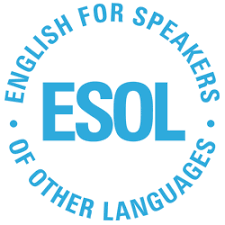
Have you ever thought about tutoring someone in English (even during a pandemic)? Most people who decide to become tutors are thinking of the good it can do, helping others from a range of nations and cultures become more proficient in English and better able to cope with employment, landlords, schools or the medical profession. But then they discover the rewards, the satisfaction that comes as progress is made and a relationship develops that enriches both learner and tutor. Perhaps you too could discover these rewards.
The Friends of the Wayland Library support a program in which volunteers are trained to become tutors and are matched with learners for one-to-one tutoring. The tutor training has two main functions: to give the tutor practical skills and broadly applicable techniques, and to enhance the tutor’s understanding of the needs of adult learners. Prior to COVID, the tutor typically met with the learner once a week for an hour or so, at a mutually convenient location, often at the Wayland Library. The library has an excellent collection of resources for tutoring, from workbooks to easy-reading fiction and biography to role-playing and games. Currently, tutors and learners are working remotely, using Zoom, Skype, Facetime, or simple phone and email. Extra mentoring is offered, to help tutors find resources online.
It is important to note that the tutor does not need knowledge of any language other than English and does not need prior teaching experience. Effective tutors come from a range of experiences, skills, and ages.
Ginny Steel and Jane Albert, Co-Directors of Wayland’s ESOL program, conduct the training sessions, and are available for ongoing support during the tutoring relationship.
Prospective tutors often wonder who the learners are, not seeing many obvious immigrants in towns like Wayland, Weston and Sudbury. Frequently a learner is the spouse of a person (often from Asia) who is employed in one of the high-tech industries or businesses in our area. Some learners are the parents of such employees, having come to be near their children and grandchildren. Some are coming to the greater Boston area to prepare for advanced degrees, while some may be nannies and some are trying to advance from entry-level jobs to better work situations. Most learners in this area are from east or southeast Asia, eastern Europe, or Central or South America.
Tutors often speak of their pleasure in learning about another culture and their greater appreciation for the challenges facing those who are adapting to ours. Many of the tutoring relationships have turned into lasting friendships.
The tutor training class this winter/spring will be on Zoom, from 6-9 PM on five consecutive Thursday evenings, Feb. 25, Mar. 4, 11, 18 and 25.
For more information or to enroll in this winter/spring tutor-training course, you can phone Ginny Steel at 508-358-7517 or email her at virginia@thesteels.com.










